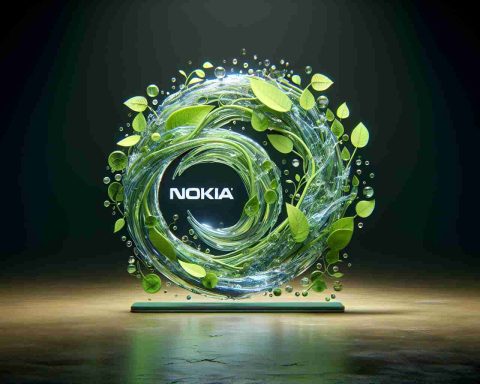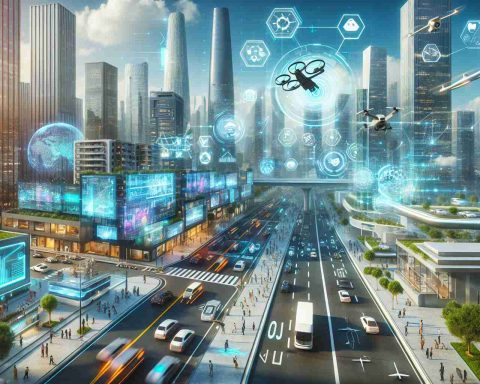Nokia Achieves Major Sustainability Milestone
Nokia has recently been recognized by Corporate Knights as one of the 100 most sustainable companies across the globe, landing in the Top 50 overall. Notably, the company secured the top spot in both the ‘telephones and telecoms equipment’ and ‘communications equipment’ categories, highlighting its industry leadership in sustainability efforts.
The telecommunication giant integrates sustainability deeply into its strategic planning for 2030, focusing on ethical operations and practices. Nokia’s ambitious plans include achieving carbon neutrality by the year 2040, reflecting its dedication to environmental stewardship. To assist in this endeavor, the company has introduced innovative tools like a sustainability calculator specifically designed for private networks.
Subho Mukherjee, who serves as the Vice President of Sustainability at Nokia, emphasized the company’s relentless effort to minimize its carbon footprint. He pointed out that Nokia is dedicated to supporting the circular economy and enhancing connectivity for underserved communities through its cutting-edge digital solutions.
As Nokia continues to prioritize sustainability, it sets a powerful example for others in the industry, proving that technological advancement and environmental responsibility can go hand in hand. With a clear vision and strategic focus, Nokia is paving the way to a greener, more connected future.
Implications of Nokia’s Sustainability Milestone
Nokia’s recognition as a leader in sustainability has significant implications for both the global economy and broader societal dynamics. As an influential player in the telecommunications sector, Nokia’s commitment to sustainable practices may catalyze a shift across industries. Companies often look to leaders in their field when establishing their own practices; thus, Nokia’s actions could inspire other tech giants to adopt similar ambitious sustainability targets, potentially transforming corporate accountability on a global scale.
Moreover, Nokia’s initiative to achieve carbon neutrality by 2040 not only contributes to climate change mitigation but also aligns with the increasing consumer demand for environmentally responsible products and services. This consumer shift is expected to drive growth in green technologies and innovation, impacting job creation and investment patterns. As sustainability becomes integral to corporate strategies, we may witness a reallocation of resources toward eco-friendly solutions, bolstering sectors like renewable energy and sustainable materials.
The potential environmental benefits are profound. By fostering a circular economy and encouraging the use of digital tools for equitable connectivity, Nokia highlights the role of technology in addressing climate challenges and reducing disparity. The company’s sustainability calculator exemplifies how thoughtful innovation can enhance operational efficiency while promoting responsible consumption.
As Nokia forges ahead, its journey serves as a model for the future: where technological advancement does not come at the expense of the planet, but rather, works to enhance both environmental and societal well-being.
Nokia’s Bold Leap Towards a Sustainable Future: What You Need to Know
Major Sustainability Achievements
Recently, Nokia has been acknowledged by Corporate Knights as one of the top 100 most sustainable companies globally, earning an impressive position within the top 50 overall. This recognition is a testament to Nokia’s commitment to sustainability, particularly in the ‘telephones and telecoms equipment’ and ‘communications equipment’ sectors, where it has achieved the highest rankings.
Strategic Sustainability Goals
Nokia has integrated sustainability into its core strategic planning, with ambitious goals set for 2030. The company’s roadmap includes a commitment to achieving carbon neutrality by 2040, showcasing its dedication to mitigating climate change and promoting environmental responsibility. Nokia’s initiatives include the implementation of a sustainability calculator tailored for private networks, designed to assist clients in making eco-friendly choices.
Innovative Tools and Community Focus
To demonstrate its commitment to reducing its carbon footprint, Nokia has pioneered several innovative tools aimed at advancing sustainable practices. Subho Mukherjee, Vice President of Sustainability at Nokia, underscores the importance of these tools in fostering a circular economy. The sustainability calculator is a significant step towards enhancing operational transparency for clients interested in reducing their environmental impact.
Additionally, Nokia is dedicated to improving connectivity for underserved communities through its advanced digital solutions. This dual approach not only emphasizes environmental sustainability but also promotes social equity and inclusivity in access to technology.
Features of Nokia’s Sustainability Initiatives
– Carbon Neutrality by 2040: Nokia aims to eliminate its carbon emissions completely by this target date.
– Sustainability Calculator: A unique tool that helps clients assess and reduce their environmental impact.
– Focus on the Circular Economy: Nokia is working towards minimizing waste and maximizing product lifecycle efficiency.
– Enhanced Connectivity: Commitment to ensuring digital solutions reach underserved populations.
Pros and Cons of Nokia’s Sustainability Approach
Pros:
– Industry leadership in sustainability, setting a benchmark for peers.
– Comprehensive strategies that align technological advancement with ecological responsibility.
– Collaborative innovations that support community development.
Cons:
– The ambitious nature of long-term goals may pose challenges in execution.
– Potential pressure to maintain sustainability while meeting growing consumer demands.
Market Insights and Trends
The recognition of Nokia as a sustainability leader taps into broader global trends where consumers and businesses increasingly prioritize environmental responsibility. Companies are now under intense scrutiny regarding their carbon footprints and sustainability practices, making Nokia’s initiatives not just visionary but essential for competitive advantage.
Moreover, as telecommunications continue to expand, sustainable practices in this sector are crucial to ensure that technology is deployed responsibly without exacerbating environmental issues.
Conclusion
Nokia’s achievements in sustainability highlight a powerful movement towards eco-friendliness within the tech industry. By pioneering innovative tools and emphasizing the importance of community connectivity, Nokia is not just setting the stage for its own future but is also inspiring other companies to adopt similar practices. Their vision reflects a promising path toward a greener, more connected world.
For more information on Nokia’s sustainability efforts, visit the official Nokia website.



















